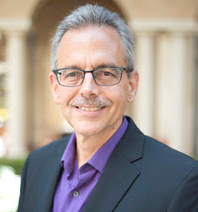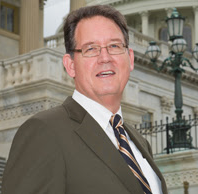Driving out the dreamers: The end of DACA
The threat of deportation looms closer for 800,000 young immigrants after President Trump ordered an end to the Deferred Action for Childhood Arrivals program in the next six months. USC experts talk about the political, racial and legal forces behind immigrant policy changes, the fears of DACA recipientsand the potential costs of ending the program enacted by President Obama in 2012 via executive order.
Contact: Ron Mackovich, (213) 810-8583 or rmackovi@usc.edu
A legally flawed decision
 “The Trump administration claims it had to terminate the DACA program because of a threat by Texas to revive a lawsuit that had been brought against the Obama administration. Attorney General Sessions, in announcing the termination of DACA, mischaracterized the previous judicial rulings in Texas v. United States as final rulings on Texas’ legal challenges.
“The Trump administration claims it had to terminate the DACA program because of a threat by Texas to revive a lawsuit that had been brought against the Obama administration. Attorney General Sessions, in announcing the termination of DACA, mischaracterized the previous judicial rulings in Texas v. United States as final rulings on Texas’ legal challenges.
“Contrary to the Attorney General’s claims, the rulings by a federal district court in Texas and by the U.S. Court of Appeals for the 5th Circuit dealt only with a preliminary injunction. While both courts (the district court judge and two of the three 5th Circuit judges) found that Texas was likely to succeed in their legal challenges, the courts did not provide final definitive rulings. The Supreme Court likewise did not rule one way or the other on the case due to the lack of a majority of the justices agreeing on the legality or illegality of the expanded DACA program. The Trump administration should not have used the threat of possible litigation as an excuse to end DACA.”
Niels Frenzen is the director of the USC Gould School of Law Immigration Clinic.
Contact: (213) 740-8933 or nfrenzen@law.usc.edu
Insults and fear on college campuses
“These are great young people. They’re fearful they or their families are going to be deported. That causes a lot of anxiety when one is a student. Many Latino students, because they’re thought to be  the face of DACA, have told me someone has called them an ‘illegal.’ Just because one might be a full citizen of the U.S. doesn’t provide immunity from those insults. Those incidents incite fear oncampuses across the country.”
the face of DACA, have told me someone has called them an ‘illegal.’ Just because one might be a full citizen of the U.S. doesn’t provide immunity from those insults. Those incidents incite fear oncampuses across the country.”
Shaun Harper is executive director of the USC Race and Equity Center. Harper and his associates have interviewed more than 10,000 students, faculty members and staff about race at institutions of higher education across the country.
Contact: (213) 740-0385 or sharper@usc.edu
Replacing DACA with immigration reform
“The program is an undeniable success and DACA concretely demonstrates how authorization to live, work, and pursue educational dreams simultaneously helps immigrants integrate and strengthens society. To strip away young people’s ability to provide for themselves, their families, and to contribute to society is cruel and inhumane. Now Congress must replace DACA with  comprehensive immigration reform that not only provides a pathway to citizenship for DACAmented youth, but also for their parents and others who contribute socially, civically, and economically to our schools, workplaces, communities, and the nation.”
comprehensive immigration reform that not only provides a pathway to citizenship for DACAmented youth, but also for their parents and others who contribute socially, civically, and economically to our schools, workplaces, communities, and the nation.”
Jody Agius Vallejo is an associate professor of sociology at the USC Dornsife College of Letters Arts and Sciences and is a faculty scholar at USC’s Center for the Study of Immigrant Integration.
Contact: (213) 740-5047 or vallejoj@usc.edu
Economic contributions of DACA recipients at risk

“Taking the DACA recipients out of the economy is estimated to cost nearly half a trillion dollars over the next decade; that’s about half the size of the still-unformed infrastructure package Trump is promising to deliver. It’s little wonder that over 400 business leaders came out in favor of keeping DACA even as Congress works to pass a more long-lasting solution. Here’s a novel and fiscally responsible idea: Leave the DACA kids earning and paying taxes, drop plans for an expensive border wall, and boost spending on roads and transit.”
Manuel Pastor recently wrote about the economic impact of ending DACA in an opinion piece for The American Prospect. He is the director of the USC’s Center for the Study of Immigrant Integration.
Contact: (213) 740‑5604 or mpastor@college.usc.edu
“DACA kids are not criminals”
“It’s one thing to root out criminals. But DACA kids are not criminals. They’re like manna from heaven. We’ve already invested in them. They’re required to be good kids to be part of the program. And you would chase them away?

“As the nation ages, we’ve got a shortage of children, thanks in part to a slower birth rate. We could be looking at critical labor shortages at a time when more retirees rely on employee contributions to Social Security and Medicare. Will there be enough working people to buy the homes of retirees, to take care of seniors, to support the safety net institutions they rely on?”
Dowell Myers was quoted in a recent Los Angeles Times column about immigrant community reaction to the White House DACA announcement. He is a professor of urban planning and demography at the USC PriceSchool of Public Policy. He was on a panel for the National Academies of Sciences, Engineering, and Medicine that authored a report this year on immigration, The Economic and Fiscal Consequences of Immigration.
Contact: (213) 740-7095 or dowell@usc.edu



